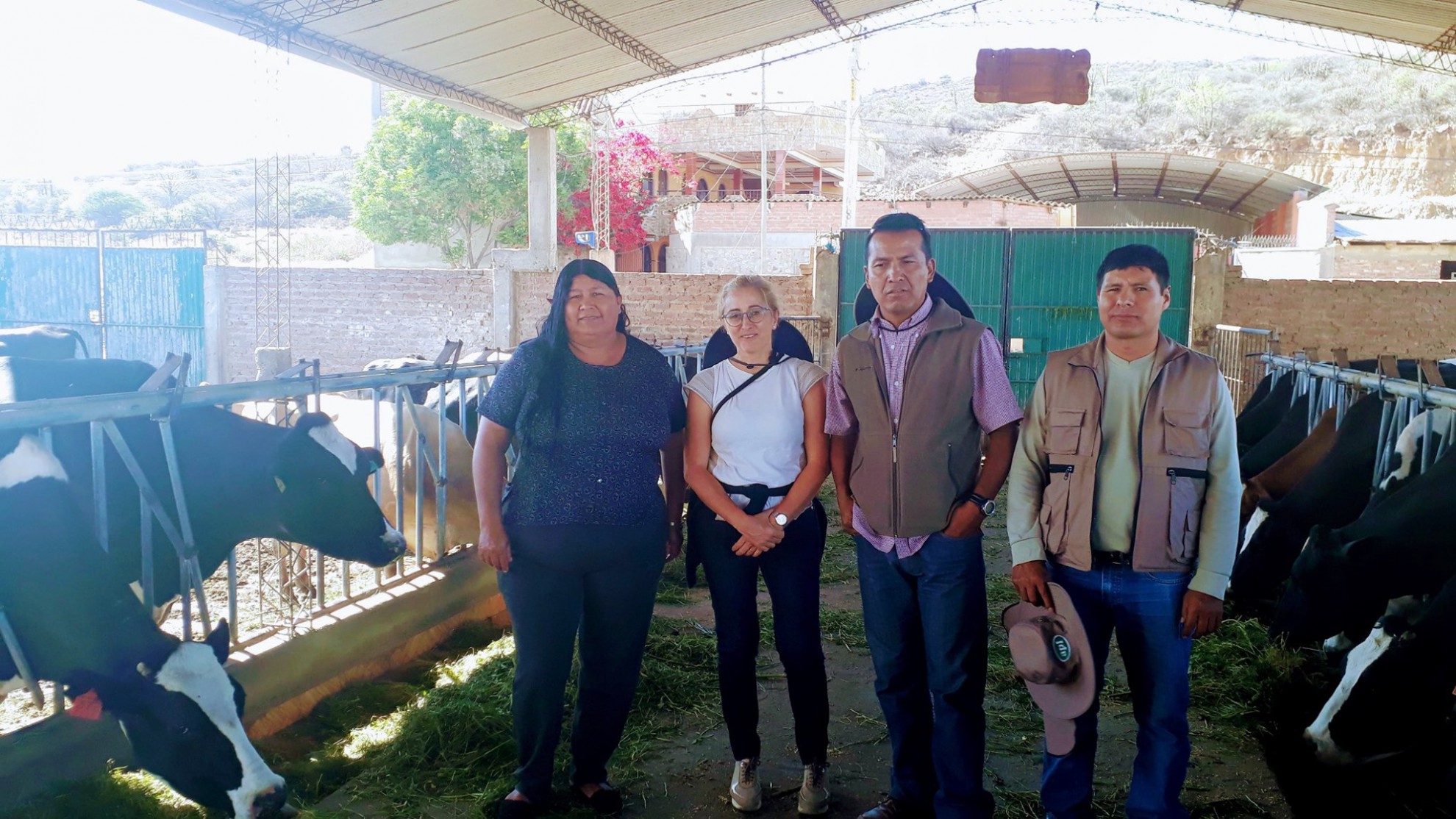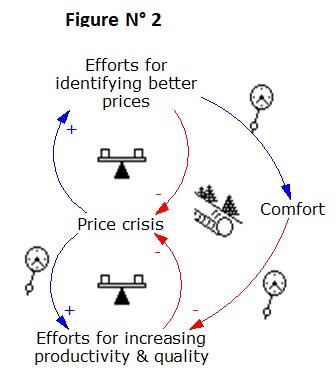Dealing with symptoms and not structural causes
14-01-2020It's a pleasure for me to share with you this post on systems archetypes in planning and decision-making process with one of our clients in Bolivia, a dairy farmers organisation. This organisation has almost 1500 members. 60% of them produce less than 100 lt of milk per day, 30% produces between 100 and 300 Lt of milk per day and 10% more than 300 lt/day.
Regulation milk price
Since 2016, the milk price in Bolivia is regulated by government. The regulation includes a preferential price, only to the volume of milk that can be sold in the domestic market (The consumption of milk in Bolivia is almost 34 Lt / person / year). Consequently, each dairy farmer was assigned a limit amount of milk that can be delivered at the preferred price to the industry. The surpluses produced by the dairy farmers receive the international market price (44% lower than regulated price). This situation pushed farmers to reduce their livestock and produce only the quantity they can sell at the preferred price, because, due to their production scale their costs are high and the unregulated price doesn’t generate profits for them.

Quality as the main problem
Farmers requested to their organisation board members to have their own milk processing plant. In this way, they wouldn’t be limited to sell only one part of their milk production at preferential price. The organisation couldn’t cover the budget with internal financing, and they weren’t creditworthy. So, the project had to wait to find better conditions. While this situation may seem to be bad news, it was the best thing which could happen to them.
This past October, when Spanish Agripool expert, María de la Luz Martinez from COVAP (Cooperativa Ganadera del Valle de los Pedroches), carried out an Agripool advisory assignment to analyse new services and improvements to current ones for this farmer organisation, underlying issues arose. She identified the quality of fodder and farm management (reproduction planning, recordkeeping, and others) as the main problems the Services Department should pay attention to. In simple words, the farmers were shifting the burden towards a new buyer (their own processing plant) and they weren’t focused in solving their underlaying problems: the low levels of productivity and quality of their milk.
Easier to deal with symptoms
Often, we shift the burden because it is easier to deal with symptoms rather than structural problems. Although it is true that the own processing milk plant is needed to increase the farmers' margins, at first, the farmer organisation must focus on supporting their members in productivity and quality efforts. Today, the private processing plant is the ‘bad guy’ because it pays lower prices and refuses the milk when it doesn’t have the allowed quality levels. But, when the buyer would be the farmer organisation’s own milk processing plant and it refuses the milk due to the low quality, farmers will have no one to complain to. Accordingly, Agriterra will plan an exchange to learn milk quality practices and advise and support the client in the small-scale model farm design and record keeping. I sincerely hope this simple case encourages to explore the fascinating world of systems thinking perspective.
Andrés Viscarra, business advisor Agriterra Bolivia


